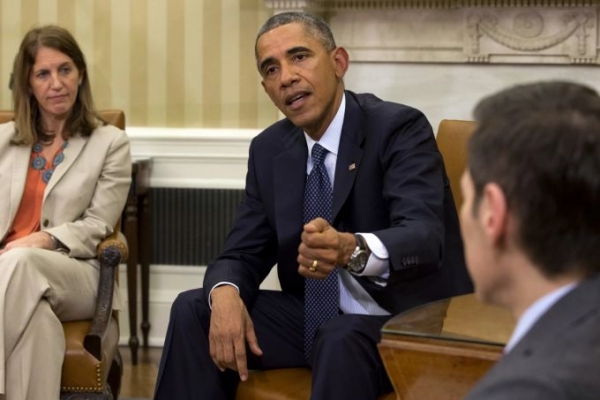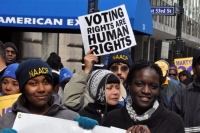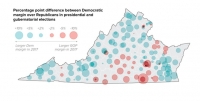In a letter to House Speaker John A. Boehner (R-Ohio), President Obama said the money would fund a comprehensive strategy “to contain and end the outbreak at its source in Africa, enhance domestic preparedness, speed the procurement and testing of vaccines and therapeutics, and accelerate global capability to prevent the spread of future infectious diseases.”
The request asks for $4.6 billion immediately and an additional $1.54 billion as a contingency fund in case the epidemic worsens. The administration’s request includes $2.43 billion for the Department of Health and Human Services, which includes the Centers for Disease Control and Prevention. And $1.98 billion would go to the U.S. Agency for International Development, the lead agency for the U.S. response in West Africa.
The State Department would get $127 million to help with medical support and evacuation of workers overseas. The Pentagon’s Defense Advanced Research Projects Agency, or DARPA, would get $112 million for developing new technologies that could be used to treat Ebola and other infectious diseases until a vaccine can be developed.
Among other objectives, the emergency money would fund the creation of 50 Ebola treatment centers in the United States and buy personal protective equipment for health-care workers. It would also boost screening at airports and borders.
The request, which will be taken up by House and Senate committees, comes amid new reports that Sierra Leone has become the country with the worst rate of transmission, with three times as many cases as Liberia in the past three weeks, according to the latest numbers from the World Health Organization. Guinea, where the outbreak began late last year, has seen caseloads leveling off.
Liberia was seeing several hundreds of new cases a week in September, but from Oct. 10 to 31 the country recorded 398 cases. Although the reliability of such data has long been questioned in a region overwhelmed by the virus, the broader picture includes empty beds in Ebola wards in Liberia and a growing sense that there has been a change in behavior, particularly in funeral practices, that has reduced the spread of the disease.
“We’re seeing real progress in fighting the disease in a country that just a month or a month-and-a-half ago was desperate and had no hope,” Obama said in a news conference in which he discussed Ebola briefly while fielding questions that focused mainly on the midterm elections.
“The Appropriations Committee will review the request,” said Kevin Smith, a spokesman for Boehner. “We’ll continue to work with our members and the administration to ensure we are doing everything we can to protect the public from a deadly disease.”
The U.S. military is sending up to 3,900 personnel to West Africa with a mandate to support the civilian response by building as many as 17 Ebola treatment units in Liberia.
Juliet Eilperin and Lena H. Sun contributed to this report.
Link to original article from The Washington Post


 Imagine going to the polls on Election Day and discovering that your ballot could be collected and reviewed by the
Imagine going to the polls on Election Day and discovering that your ballot could be collected and reviewed by the ACLU Blueprints Offer Vision to Cut US Incarceration Rate in Half by Prioritizing 'People Over Prisons'
ACLU Blueprints Offer Vision to Cut US Incarceration Rate in Half by Prioritizing 'People Over Prisons'  "These disasters drag into the light exactly who is already being thrown away," notes Naomi Klein
"These disasters drag into the light exactly who is already being thrown away," notes Naomi Klein  How about some good news? Kansas Democratic Representative advances bill for Native Peoples.
How about some good news? Kansas Democratic Representative advances bill for Native Peoples.  What mattered was that he showed up — that he put himself in front of the people whose opinions on
What mattered was that he showed up — that he put himself in front of the people whose opinions on On a night of Democratic victories, one of the most significant wins came in Virginia, where the party held onto
On a night of Democratic victories, one of the most significant wins came in Virginia, where the party held onto A seismic political battle that could send shockwaves all the way to the White House was launched last week in
A seismic political battle that could send shockwaves all the way to the White House was launched last week in In an interview with Reuters conducted a month after he took office, Donald Trump asserted that the U.S. had “fallen
In an interview with Reuters conducted a month after he took office, Donald Trump asserted that the U.S. had “fallen Attorney General Jeff Sessions overturned the sweeping criminal charging policy of former attorney general Eric H. Holder Jr. and directed
Attorney General Jeff Sessions overturned the sweeping criminal charging policy of former attorney general Eric H. Holder Jr. and directed